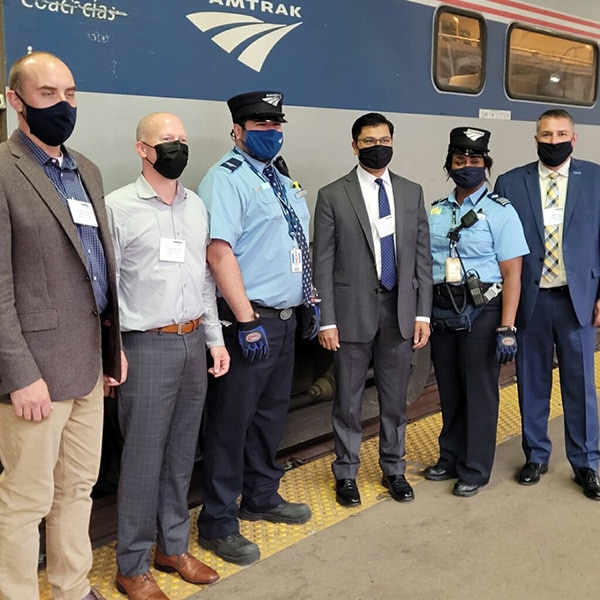The Federal Railroad Administration on Sept. 21 sided with a SMART Transportation Division request to reject the extension of COVID-related regulatory waiver requests by the Association of American Railroads (AAR) and the American Public Transportation Association (APTA).
The waivers, initially granted in March 2020 by the Trump administration in response to the emerging coronavirus pandemic, were roundly criticized by the SMART Transportation Division at their inception. They had been extended on multiple occasions since then and covered regulations governing:
- Training
- Locomotive engineer skills examinations
- Locomotive and conductor certification
- Territorial qualifications
On Sept. 13, the SMART-TD National Legislative Department filed public comments in objection to the latest extension request, saying the following:
“It is hard for this Organization to grasp that the railroads are seriously concerned about the pandemic when they are doing little to nothing to prevent its spread. In fact, it seems they only want the CDC guidelines to apply where they might be most able to cut an operational corner, rather than provide a safe and sterile work environment,” National Legislative Director Greg Hynes wrote. “According to our applicable members: locomotive, crew room, and transport vehicle cleaning and sanitation has all but stopped (and has been for quite some time). Clearly, prevention of the spread of the virus has taken a back seat to waivers and relief from rules. Safety is either important or it isn’t. It doesn’t just apply here and there.”
FRA concurred with many of the points referred to by SMART-TD in its response, especially regarding training of new rail employees. The agency noted that carriers appeared to use the waivers of at least two rules for an intent outside the purpose originally sought. “FRA’s investigation of these concerns revealed that in numerous instances the railroads were utilizing this relief not to facilitate social distancing, but instead, out of administrative convenience,” FRA’s Karl Alexy wrote.
The SMART-TD National Legislative Office noted that the agency appears to be more responsive to safety concerns expressed by labor and commented on the renewed receptiveness the agency has displayed since the administration of President Joe Biden took charge at the beginning of the year.
“A change in leadership at FRA has made a difference,” National Legislative Director Greg Hynes said. “We thank Deputy Administrator Amit Bose for his agency’s thoughtful consideration of our input as they made a decision on the extensions.”
In the same response to AAR, FRA granted two other extensions to which the SMART-TD National Legislative Department did not object that covered quick tie-ups and locomotive engineer and conductor recertification timelines.
Last week, Bose appeared before the U.S. Senate Committee on Commerce, Science and Transportation regarding his nomination to become administrator of FRA. His nomination remains before the committee as additional written questions were posed by committee members and submitted to nominees after the Sept. 22 hearing.

